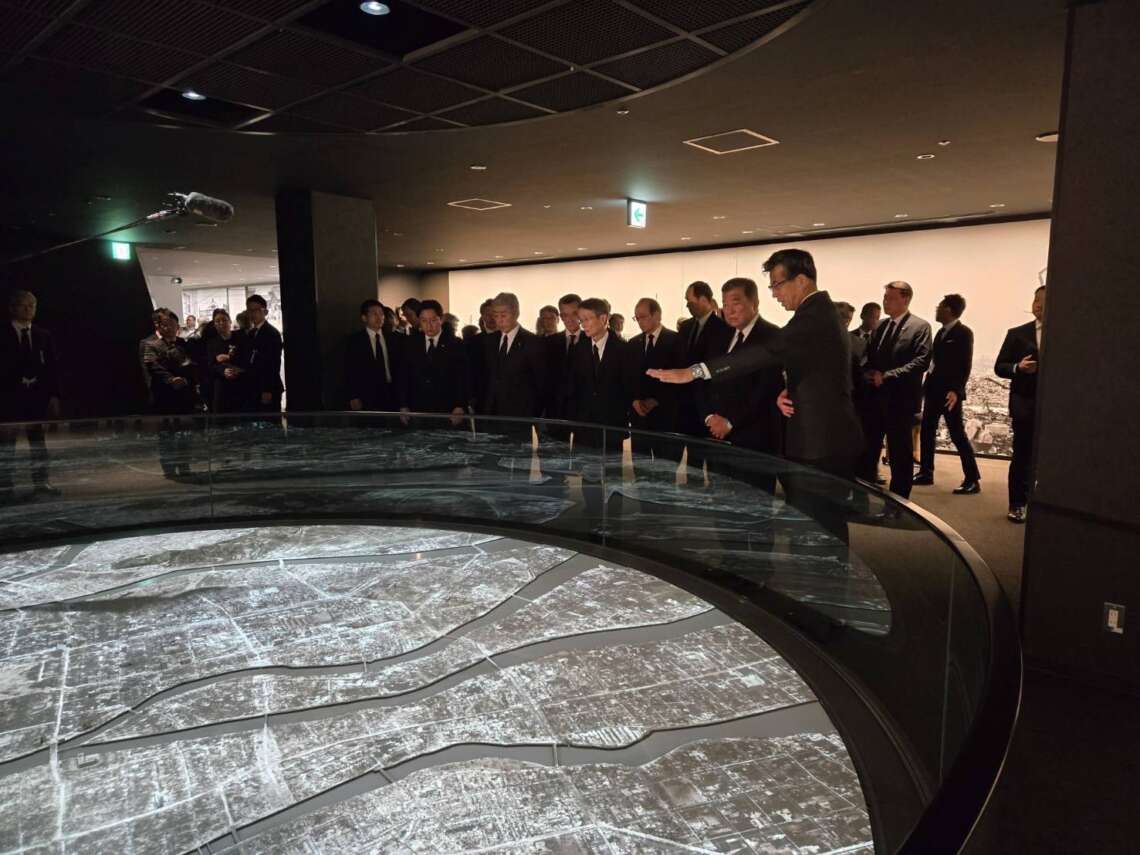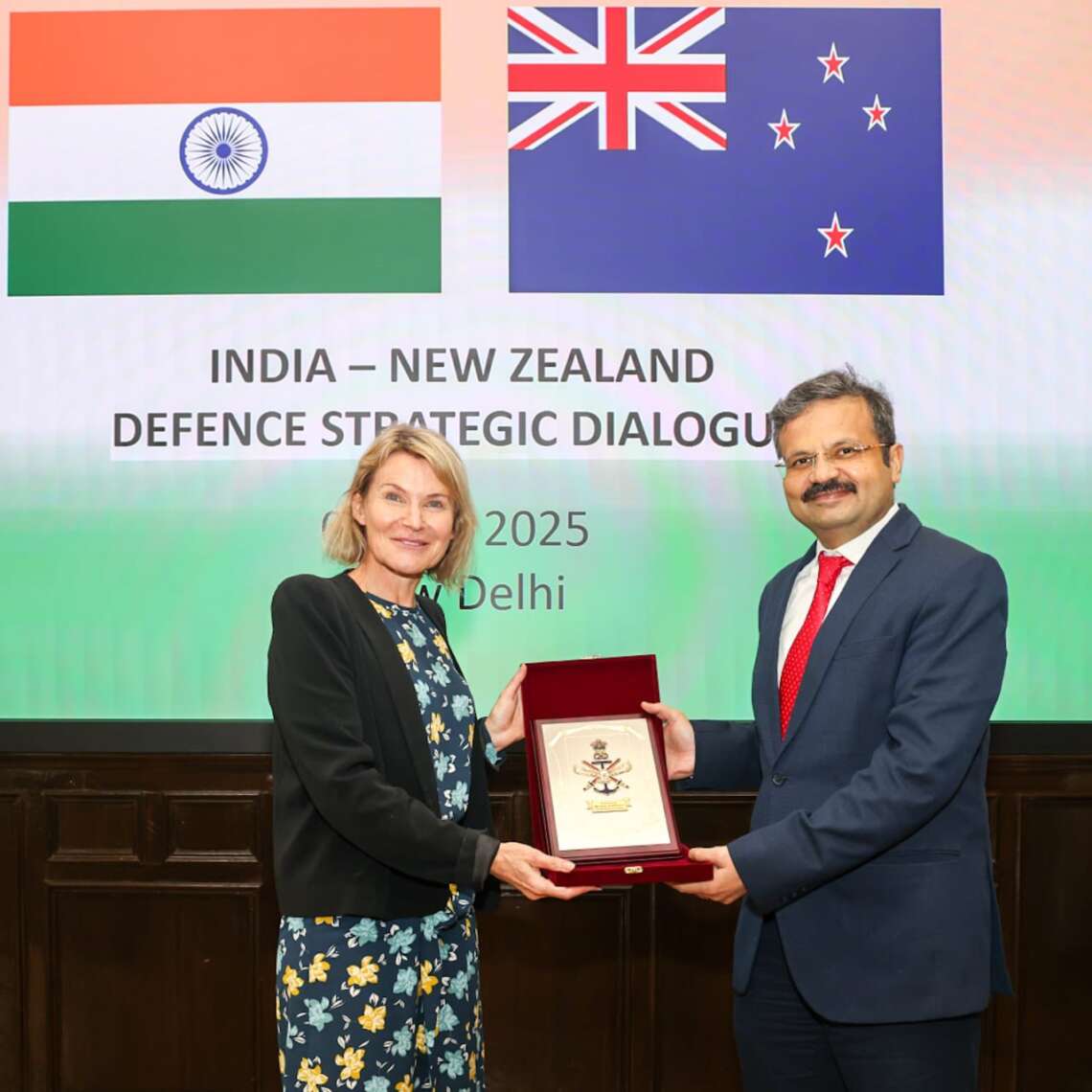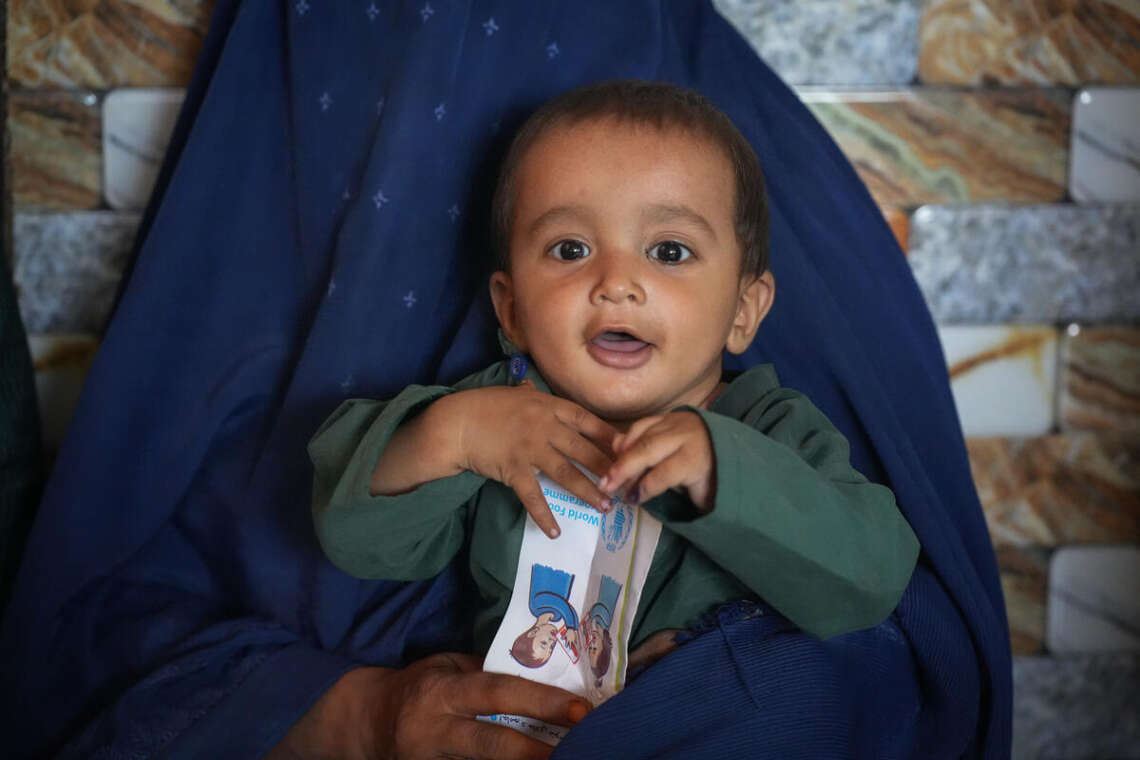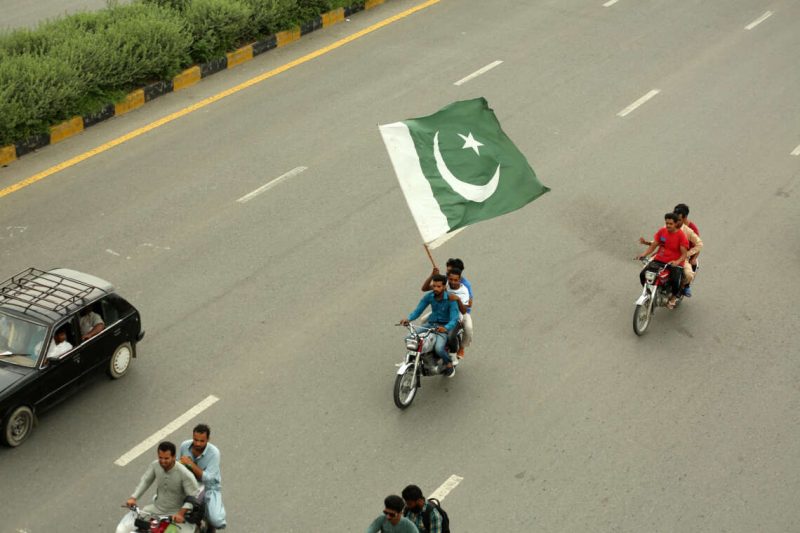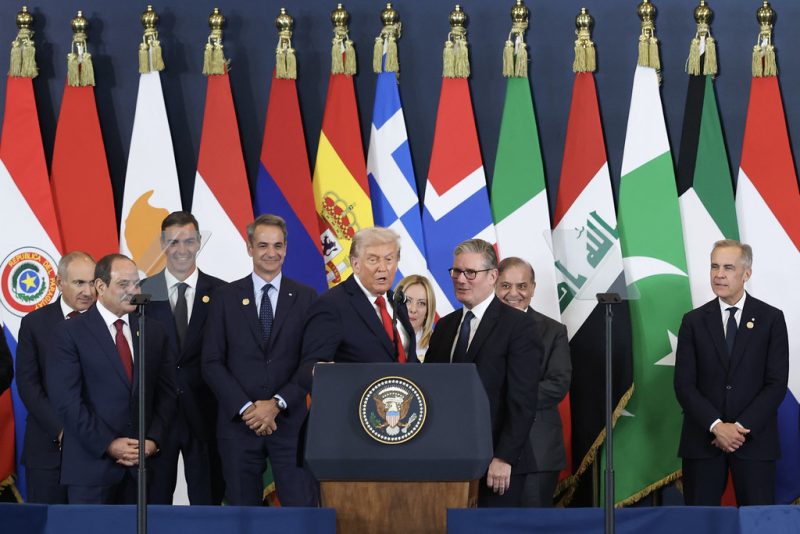Eighty years after the world’s first nuclear attack, Hiroshima honours its dead and urges global leaders to disarm before history repeats its most devastating lesson….reports Asian Lite News
Thousands gathered at Hiroshima’s Peace Memorial Park on Wednesday to mark the 80th anniversary of the world’s first wartime nuclear bombing, honouring victims and renewing global calls for disarmament. The solemn ceremony, attended by survivors, schoolchildren, Japanese officials and delegates from 120 countries and territories, commemorated the horrors of the atomic attack while warning against the resurgence of nuclear threats in modern geopolitics.
On August 6, 1945, the United States dropped a uranium bomb, codenamed Little Boy, on the city of Hiroshima. The explosion instantly killed an estimated 78,000 people, with tens of thousands more succumbing to burns, injuries, and radiation sickness in the months that followed. The attack, followed by the bombing of Nagasaki three days later, led to Japan’s surrender and the end of World War II.
At exactly 8:15 a.m.—the moment the bomb detonated—attendees observed a minute of silence as the toll of a peace bell echoed through the park. Flowers and water were offered by citizens, including children, as symbolic gestures of remembrance for the victims, particularly those who struggled to survive in the aftermath with little access to water or aid.
Hiroshima Mayor Kazumi Matsui, delivering the annual Peace Declaration, strongly criticised what he described as the resurgence of militarism and the growing belief among global leaders that nuclear weapons are indispensable to national defence. “Among the world’s political leaders, there is a growing belief that possessing nuclear weapons is unavoidable in order to protect their own countries,” he said. “This situation not only nullifies the lessons the international community has learned from the tragic history of the past, but also seriously undermines the frameworks that have been built for peace-building.”
Matsui urged political leaders worldwide to visit Hiroshima and witness the human toll of atomic warfare first-hand. His remarks carried an implicit rebuke of the world’s major nuclear powers, particularly the United States and Russia, who together hold over 90 percent of the planet’s nuclear arsenal.
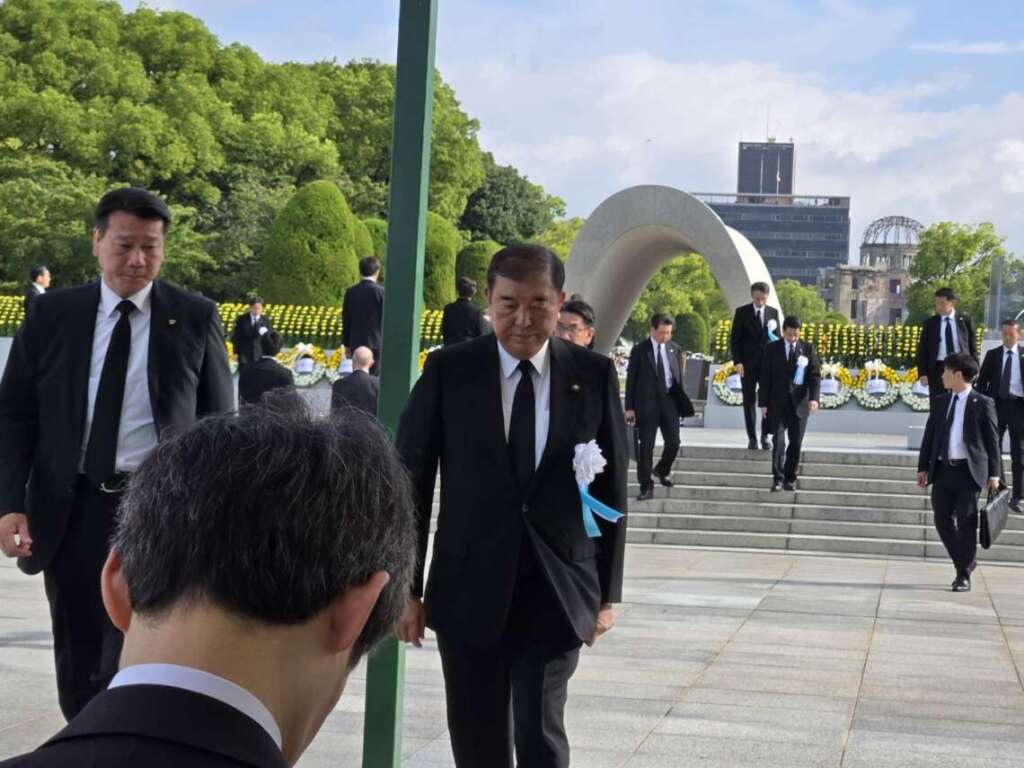
The ceremony also featured heartfelt recitations by schoolchildren from across Japan, who read the “Promise of Peace” — a hopeful pledge for a future without nuclear arms. A representative for United Nations Secretary-General António Guterres delivered a message reaffirming the UN’s commitment to global nuclear disarmament.
Survivors of the bombing, known as hibakusha, were also in attendance. Many of them, now elderly, have spent decades advocating for peace despite once facing stigma and discrimination due to fears of radiation-related illnesses. Their numbers have now dipped below 100,000 for the first time, raising concerns about who will carry their testimonies into the future.
Despite Japan’s strong public stance in favour of nuclear disarmament, it remains outside the UN Treaty on the Prohibition of Nuclear Weapons, reflecting the complexity of its alliance with the United States and the realities of its security policy in the Indo-Pacific.
Still, Hiroshima’s message was clear: nuclear weapons must never be used again.
As the world grapples with new conflicts and an arms race of emerging technologies, the haunting memory of Hiroshima stands as a powerful reminder of what is at stake when diplomacy fails and war escalates to unimaginable extremes.


